Want to know what books Adam Grant recommends on their reading list? We've researched interviews, social media posts, podcasts, and articles to build a comprehensive list of Adam Grant's favorite book recommendations of all time.
1

From the National Magazine Award-winning Runner’s World columnist, frequent New Yorker online contributor, and Cambridge-trained physicist: a fascinating and definitive exploration of the extraordinary science of human endurance and the secrets of human performance, for fans of The Sports Gene, Born to Run, and Grit.
From running a two-hour marathon to summiting Mount Everest, we’re fascinated by the extremes of human endurance, constantly testing both our physical and psychological limits.
How high or far or fast can humans go?... more From the National Magazine Award-winning Runner’s World columnist, frequent New Yorker online contributor, and Cambridge-trained physicist: a fascinating and definitive exploration of the extraordinary science of human endurance and the secrets of human performance, for fans of The Sports Gene, Born to Run, and Grit.
From running a two-hour marathon to summiting Mount Everest, we’re fascinated by the extremes of human endurance, constantly testing both our physical and psychological limits.
How high or far or fast can humans go? And what about individual potential: what defines a person’s limits?
For years, physiology determined the answer: heart size, lung capacity, and muscle strength. But over the past decade, a wave of dramatic findings in the cutting-edge science of endurance has completely overturned our understanding of human limitation. Endure widely disseminates these findings for the first time: It’s the brain that dictates how far we can go—which means we can always push ourselves further.
Hutchinson presents an overview of science’s search for understanding human fatigue, from crude experiments with electricity and frogs’ legs to sophisticated brain imaging technology. Going beyond the traditional mechanical view of human limits (like a car with a brick on its gas pedal, we go until the tank runs out of gas), he instead argues that a key element in endurance is how the brain responds to distress signals—whether heat, or cold, or muscles screaming with lactic acid—and reveals that we can train to improve brain response.
An elite distance runner himself, Hutchinson takes us to the forefront of the new sports psychology—brain electrode jolts, computer-based training, subliminal messaging—and presents startling new discoveries enhancing the performance of athletes today and shows how anyone can utilize these tactics to bolster their own performance—and get the most out of their bodies. less 
Bear GryllsIf you want to gain insight into the mind of great athletes, adventurers, and peak performers then prepare to be enthralled by Alex Hutchinson’s Endure. (Source)
2

From one of today's foremost innovation leaders, an inspiring and practical guide to mastering change in the face of uncertainty.
The world will never be slower than it is right now, says Beth Comstock, the former Vice Chair and head of marketing and innovation at GE. But confronting relentless change is hard. Companies get disrupted as challengers steal away customers; employees have to move ahead without knowing the answers. To thrive in today's world, every one of us has to make change part of our job.
In Imagine It Forward, Comstock, in a candid... more From one of today's foremost innovation leaders, an inspiring and practical guide to mastering change in the face of uncertainty.
The world will never be slower than it is right now, says Beth Comstock, the former Vice Chair and head of marketing and innovation at GE. But confronting relentless change is hard. Companies get disrupted as challengers steal away customers; employees have to move ahead without knowing the answers. To thrive in today's world, every one of us has to make change part of our job.
In Imagine It Forward, Comstock, in a candid and deeply personal narrative, shares lessons from a thirty year career as the change-maker in chief, navigating the space between the established and the unproven. As the woman who initiated GE's digital and clean-energy transformations, and its FastWorks methodology, she challenged a global organization to not wait for perfection but to spot trends, take smart risks and test new ideas more often. She shows how each one of us can--in fact, must--become a "change maker."
"Ideas are rarely the problem," writes Comstock. "What holds all of us back, really--is fear. It's the attachment to the old, to 'What We Know.'"
Change is messy and fraught with tension, uncertainty and failure. Being "change ready" calls for the courage to defy convention, the resilience to overcome doubts, and the savvy to know when to go around corporate gatekeepers to reinvent what is possible.
Among the practical takeaways Comstock offers:
- The power of discovery--bringing the outside into your organization. It's about turning the world into a classroom.
- Find a spark--provocateurs who challenge established ways of thinking can be a powerful catalyst for change.
- Give yourself permission--every change maker must learn to give herself permission to push outside expectations and boundaries.
Confronting today's accelerating change requires an extraordinary degree of problem-solving, collaboration, and forward-thinking leadership to unlock every person's potential. Imagine It Forward masterfully points the way. less 
Phil KnightBeth Comstock has written a wonderful book, full of excellent insights and lessons from her hugely successful career. She has recently been elected to the advertising all of fame, and after reading this you will know why. This book is of great value to almost virtually any leader and her stories and examples are told in a breezy way that makes it a joy to read. (Source)

Gary VaynerchukBeth is a true force of smart, practical, and most of all, inspiring executions in the new business world. There are few people who I think 'get it,' and she’s at the top of that list. (Source)

Simon SinekIf there is one skill that more individuals and companies need to hone it's imagination. And if there is one person who can teach us how to do it, it’s Beth Comstock. Woven together through her own journey, Comstock offers us simple and practical steps on things we can all do to prepare ourselves for the future…or even invent it. (Source)
3

You sit down at your desk to work on an important project, but a notification on your phone interrupts your morning. Later, as you're about to get back to work, a colleague taps you on the shoulder to chat. At home, screens get in the way of quality time with your family. Another day goes by, and once again, your most important personal and professional goals are put on hold.
What would be possible if you followed through on your best intentions? What could you accomplish if you could stay focused and overcome distractions? What if you had the power to become... more You sit down at your desk to work on an important project, but a notification on your phone interrupts your morning. Later, as you're about to get back to work, a colleague taps you on the shoulder to chat. At home, screens get in the way of quality time with your family. Another day goes by, and once again, your most important personal and professional goals are put on hold.
What would be possible if you followed through on your best intentions? What could you accomplish if you could stay focused and overcome distractions? What if you had the power to become "indistractable"?
International best-selling author, former Stanford lecturer, and behavioral design expert, Nir Eyal, wrote Silicon Valley's handbook for making technology habit-forming. Five years after publishing Hooked, Eyal reveals distraction's Achilles' heel in his groundbreaking new book.
In Indistractable, Eyal reveals the hidden psychology driving us to distraction. He describes why solving the problem is not as simple as swearing off our devices: Abstinence is impractical and often makes us want more.
Eyal lays bare the secret of finally doing what you say you will do with a four-step, research-backed model. Indistractable reveals the key to getting the best out of technology, without letting it get the best of us.
Inside, Eyal overturns conventional wisdom and reveals:
Why distraction at work is a symptom of a dysfunctional company culture - and how to fix it
What really drives human behavior and why "time management is pain management"
Why your relationships (and your sex life) depend on you becoming indistractable
How to raise indistractable children in an increasingly distracting world
Empowering and optimistic, Indistractable provides practical, novel techniques to control your time and attention - helping you live the life you really want. less 
Mark MansonIndistractable is the most practical and realistic approach to balancing technology with well-being. A must-read for anyone with a smartphone. (Source)

Cal NewportIndistractable is a master class in understanding the root cause of distraction. Recommended for anyone looking to do more deep work. (Source)
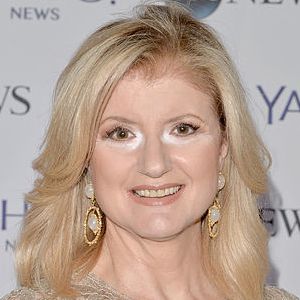
Arianna HuffingtonThis is such an important book. Indistractable is the best guide I’ve read for reclaiming our attention, our focus, and our lives. (Source)
4

One of the start-up world’s most in-demand executive coaches—hailed as the “CEO Whisperer” (Gimlet Media)—reveals why radical self-inquiry is critical to professional success and healthy relationships in all realms of life.
Jerry Colonna helps start-up CEOs make peace with their demons, the psychological habits and behavioral patterns that have helped them to succeed—molding them into highly accomplished individuals—yet have been detrimental to their relationships and ultimate well-being. Now, this venture capitalist turned executive coach shares his unusual yet... more One of the start-up world’s most in-demand executive coaches—hailed as the “CEO Whisperer” (Gimlet Media)—reveals why radical self-inquiry is critical to professional success and healthy relationships in all realms of life.
Jerry Colonna helps start-up CEOs make peace with their demons, the psychological habits and behavioral patterns that have helped them to succeed—molding them into highly accomplished individuals—yet have been detrimental to their relationships and ultimate well-being. Now, this venture capitalist turned executive coach shares his unusual yet highly effective blend of Buddhism, Jungian therapy, and entrepreneurial straight talk to help leaders overcome their own psychological traumas. Reboot is a journey of radical self-inquiry, helping you to reset your life by sorting through the emotional baggage that is holding you back professionally, and even more important, in your relationships.
Jerry has taught CEOs and their top teams to realize their potential by using the raw material of their lives to find meaning, to build healthy interpersonal bonds, and to become more compassionate and bold leaders. In Reboot, he inspires everyone to hold themselves responsible for their choices and for the possibility of truly achieving their dreams.
Work does not have to destroy us. Work can be the way in which we achieve our fullest self, Jerry firmly believes. What we need, sometimes, is a chance to reset our goals and to reconnect with our deepest selves and with each other. Reboot moves and empowers us to begin this journey. less 
Brad FeldJerry and I learned how to be VCs together. But more importantly, we learned how to be humans to the leaders who are entrepreneurs. Leadership is extremely difficult, and great leaders are intensely introspective, as they must learn about themselves to be effective long-term. With this book, Jerry helps any leader go deep on all aspects of their journey. (Source)
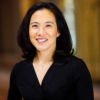
Angela DuckworthIf you want to be a better leader, or a better person, or both, read this book. A beautifully written, achingly honest account of why you can’t grow a business without growing yourself. (Source)

Patty McCordJerry's book is so much more than the secrets of the CEO whisperer. It’s about the courage to have a broken open heart. (Source)
5

"In this masterpiece, Jamil Zaki weaves together the very latest science with stories that will stay in your heart forever."--Angela Duckworth, author of Grit
Empathy is in short supply. We struggle to understand people who aren't like us, but find it easy to hate them. Studies show that we are less caring than we were even thirty years ago. In 2006, Barack Obama said that the United States was suffering from an "empathy deficit." Since then, things seem to have only gotten worse.
It doesn't have to be this way. In this groundbreaking book, Jamil Zaki... more "In this masterpiece, Jamil Zaki weaves together the very latest science with stories that will stay in your heart forever."--Angela Duckworth, author of Grit
Empathy is in short supply. We struggle to understand people who aren't like us, but find it easy to hate them. Studies show that we are less caring than we were even thirty years ago. In 2006, Barack Obama said that the United States was suffering from an "empathy deficit." Since then, things seem to have only gotten worse.
It doesn't have to be this way. In this groundbreaking book, Jamil Zaki shares cutting-edge research, including experiments from his own lab, showing that empathy is not a fixed trait--something we're born with or not--but rather a skill that can be strengthened through effort. He also tells the stories of people who embody this new perspective, fighting for kindness in the most difficult of circumstances. We meet a former neo-Nazi who is now helping to extract people from hate groups, ex-prisoners discussing novels with the judge who sentenced them, Washington police officers changing their culture to decrease violence among their ranks, and NICU nurses fine-tuning their empathy so that they don't succumb to burnout.
Written with clarity and passion, The War for Kindness is an inspiring call to action. The future may depend on whether we accept the challenge.
Praise for The War for Kindness
"A wide-ranging practical guide to making the world better."--NPR
"Relating anecdotes and test cases from his fellow researchers, news events and the imaginary world of literature and entertainment, Zaki makes a vital case for 'fighting for kindness.' . . . If he's right--and after reading The War for Kindness, you'll probably think so--Zaki's work is right on time." --San Francisco Chronicle
"In this landmark book, Jamil Zaki gives us a revolutionary perspective on empathy: Empathy can be developed, and, when it is, people, relationships, organizations, and cultures are changed."--Carol Dweck, author of Mindset
less 
Carol S. DweckIn this landmark book, Jamil Zaki gives us a revolutionary perspective on empathy: Empathy can be developed, and, when it is, people, relationships, organizations, and cultures are changed. (Source)

Angela DuckworthIn this masterpiece, Jamil Zaki weaves together the very latest science with stories that will stay in your heart forever. If you'd like the world to be a kinder place, starting with your own capacity for empathy, read The War for Kindness. You'll never be the same. (Source)

Arianna HuffingtonJamil Zaki's wonderful new book, The War for Kindness, shows that empathy isn't a fixed trait — it's something we can, and must, develop and nurture. https://t.co/LfRpjvhkY4 (Source)
6

What's the most effective path to success in any domain? It's not what you think.
Plenty of experts argue that anyone who wants to develop a skill, play an instrument, or lead their field should start early, focus intensely, and rack up as many hours of deliberate practice as possible. If you dabble or delay, you'll never catch up to the people who got a head start. But a closer look at research on the world's top performers, from professional athletes to Nobel laureates, shows that early specialization is the exception, not the rule.
David Epstein examined... more What's the most effective path to success in any domain? It's not what you think.
Plenty of experts argue that anyone who wants to develop a skill, play an instrument, or lead their field should start early, focus intensely, and rack up as many hours of deliberate practice as possible. If you dabble or delay, you'll never catch up to the people who got a head start. But a closer look at research on the world's top performers, from professional athletes to Nobel laureates, shows that early specialization is the exception, not the rule.
David Epstein examined the world's most successful athletes, artists, musicians, inventors, forecasters and scientists. He discovered that in most fields--especially those that are complex and unpredictable--generalists, not specialists, are primed to excel. Generalists often find their path late, and they juggle many interests rather than focusing on one. They're also more creative, more agile, and able to make connections their more specialized peers can't see.
Provocative, rigorous, and engrossing, Range makes a compelling case for actively cultivating inefficiency. Failing a test is the best way to learn. Frequent quitters end up with the most fulfilling careers. The most impactful inventors cross domains rather than deepening their knowledge in a single area. As experts silo themselves further while computers master more of the skills once reserved for highly focused humans, people who think broadly and embrace diverse experiences and perspectives will increasingly thrive. less 
Malcolm GladwellFor reasons I cannot explain, David Epstein manages to make me thoroughly enjoy the experience of being told that everything I thought about something was wrong. I loved Range. (Source)

Susan CainIt’s a joy to spend hours in the company of a writer as gifted as David Epstein. And the joy is all the greater when that writer shares so much crucial and revelatory information about performance, success, and education. (Source)

Kobe BryantThis book looks at how an emphasis on specialization can actually hamper our ability to really excel at something. It aligns with what I try to do when I am coaching, in my stories, and what we’re doing with Mamba Sports Academy — create all-around athletes who can think critically and make assessments in real time to enhance their play rather than rely only on a narrow set of skills. (Source)
7

For too long, scientists have focused on the dark side of our biological heritage: our capacity for aggression, cruelty, prejudice, and self-interest. But natural selection has given us a suite of beneficial social features, including our capacity for love, friendship, cooperation, and learning. Beneath all of our inventions -- our tools, farms, machines, cities, nations -- we carry with us innate proclivities to make a good society.
In Blueprint, Nicholas A. Christakis introduces the compelling idea that our genes affect not only our bodies and behaviors, but also the... more For too long, scientists have focused on the dark side of our biological heritage: our capacity for aggression, cruelty, prejudice, and self-interest. But natural selection has given us a suite of beneficial social features, including our capacity for love, friendship, cooperation, and learning. Beneath all of our inventions -- our tools, farms, machines, cities, nations -- we carry with us innate proclivities to make a good society.
In Blueprint, Nicholas A. Christakis introduces the compelling idea that our genes affect not only our bodies and behaviors, but also the ways in which we make societies, ones that are surprisingly similar worldwide.
With many vivid examples -- including diverse historical and contemporary cultures, communities formed in the wake of shipwrecks, commune dwellers seeking utopia, online groups thrown together by design or involving artificially intelligent bots, and even the tender and complex social arrangements of elephants and dolphins that so resemble our own -- Christakis shows that, despite a human history replete with violence, we cannot escape our social blueprint for goodness.
In a world of increasing political and economic polarization, it's tempting to ignore the positive role of our evolutionary past. But by exploring the ancient roots of goodness in civilization, Blueprint shows that our genes have shaped societies for our welfare and that, in a feedback loop stretching back many thousands of years, societies are still shaping our genes today. less 
Eric SchmidtTribalism is all around us, but it does not have to be. After all, we are all human. In lively and engaging prose, Christakis shows what is possible, and what we must do. (Source)

Bill GatesAre our similarities powerful enough to overcome our differences? “Blueprint” is an optimistic (and terrific) book that explores why humans have evolved to work together and cooperate. https://t.co/mQz07WvFgm (Source)

Steven PinkerNicholas Christakis is a pioneer in bridging the conceptual chasm between the choices of individual people and the shaping of an entire society. In this timely and fascinating book, he shows how the better angels of our nature, rooted in our evolutionary past, can bring forth an enlightened and compassionate civilization. (Source)
8

Chris Voss, Tahl Raz | 4.60
A former international hostage negotiator for the FBI offers a new, field-tested approach to high-stakes negotiations—whether in the boardroom or at home.
After a stint policing the rough streets of Kansas City, Missouri, Chris Voss joined the FBI, where his career as a hostage negotiator brought him face-to-face with a range of criminals, including bank robbers and terrorists. Reaching the pinnacle of his profession, he became the FBI’s lead international kidnapping negotiator. Never Split the Difference takes you inside the world of high-stakes negotiations and into... more A former international hostage negotiator for the FBI offers a new, field-tested approach to high-stakes negotiations—whether in the boardroom or at home.
After a stint policing the rough streets of Kansas City, Missouri, Chris Voss joined the FBI, where his career as a hostage negotiator brought him face-to-face with a range of criminals, including bank robbers and terrorists. Reaching the pinnacle of his profession, he became the FBI’s lead international kidnapping negotiator. Never Split the Difference takes you inside the world of high-stakes negotiations and into Voss’s head, revealing the skills that helped him and his colleagues to succeed where it mattered most: saving lives. In this practical guide, he shares the nine effective principles—counter-intuitive tactics and strategies—you too can use to become more persuasive in both your professional and personal life.
Life is a series of negotiations you should be prepared for: buying a car; negotiating a salary; buying a home; renegotiating rent; deliberating with your partner. Taking emotional intelligence and intuition to the next level, Never Split the Difference gives you the competitive edge in any discussion. less 
Dustin Moskovitz[Dustin Moskovitz recommended this book on Twitter.] (Source)
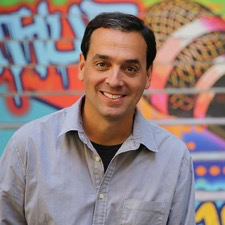
Daniel PinkEmphasizes the importance of emotional intelligence without sacrificing deal-making power. From the pen of a former hostage negotiator—someone who couldn’t take no for an answer—which makes it fascinating reading. But it’s also eminently practical. In these pages, you will find the techniques for getting the deal you want. (Source)

Adam Granteval(ez_write_tag([[250,250],'theceolibrary_com-large-mobile-banner-2','ezslot_6',164,'0','1']));
This book blew my mind. It’s a riveting read, full of instantly actionable advice—not just for high-stakes negotiations, but also for handling everyday conflicts at work and at home. (Source)
9

As in the Obstacle is the way, Ryan holiday delivers practical and inspiring philosophy, this time exploring a powerful concept that runs back centuries, across borders and schools of thought: Ego. Ego is our biggest enemy. Early in our careers, it can prevent us from learning and developing our talents. When we taste success, ego can blind us to our own faults, alienate us from others and lead to our downfall. In failure, ego is devastating and makes recovery all the more difficult. It is only by identifying our ego, speaking to its desires and systematically disarming it that we can create... more As in the Obstacle is the way, Ryan holiday delivers practical and inspiring philosophy, this time exploring a powerful concept that runs back centuries, across borders and schools of thought: Ego. Ego is our biggest enemy. Early in our careers, it can prevent us from learning and developing our talents. When we taste success, ego can blind us to our own faults, alienate us from others and lead to our downfall. In failure, ego is devastating and makes recovery all the more difficult. It is only by identifying our ego, speaking to its desires and systematically disarming it that we can create our best work. Organised into bite-sized observations featuring characters and narratives that illustrate themes and life lessons designed to resonate, uplift and inspire, Ego is the Enemy shows how you can be humble in your aspirations, gracious in your success and resilient in your failures. It is an inspiring and timely reminder that humility and confidence are still our greatest friends when confronting the challenges of a culture which tends to fan the flames of ego and encourage the cult of personality at all costs. less 
Charlamagne Tha GodThis is one of my favorite authors on the planet @ryanholiday one of his many books is titled “Ego Is The Enemy.” So if you want more from him on the subject of ego than what’s in this 60 second clip that’s the book… https://t.co/0QDe9V69KV (Source)

Robert GreeneInspiring yet practical... teaches us how to manage and tame this beast within us so that we can focus on what really matters - producing the best work possible. (Source)

Marvin LiaoMy list would be (besides the ones I mentioned in answer to the previous question) both business & Fiction/Sci-Fi and ones I personally found helpful to myself. The business books explain just exactly how business, work & investing are in reality & how to think properly & differentiate yourself. On the non-business side, a mix of History & classic fiction to understand people, philosophy to make... (Source)
10

One of the most valuable skills in our economy is becoming increasingly rare. If you master this skill, you'll achieve extraordinary results.
Deep work is the ability to focus without distraction on a cognitively demanding task. It's a skill that allows you to quickly master complicated information and produce better results in less time. Deep work will make you better at what you do and provide the sense of true fulfillment that comes from craftsmanship. In short, deep work is like a super power in our increasingly competitive twenty-first century economy. And yet, most... more One of the most valuable skills in our economy is becoming increasingly rare. If you master this skill, you'll achieve extraordinary results.
Deep work is the ability to focus without distraction on a cognitively demanding task. It's a skill that allows you to quickly master complicated information and produce better results in less time. Deep work will make you better at what you do and provide the sense of true fulfillment that comes from craftsmanship. In short, deep work is like a super power in our increasingly competitive twenty-first century economy. And yet, most people have lost the ability to go deep-spending their days instead in a frantic blur of e-mail and social media, not even realizing there's a better way.
In Deep Work, author and professor Cal Newport flips the narrative on impact in a connected age. Instead of arguing distraction is bad, he instead celebrates the power of its opposite. Dividing this book into two parts, he first makes the case that in almost any profession, cultivating a deep work ethic will produce massive benefits. He then presents a rigorous training regimen, presented as a series of four "rules," for transforming your mind and habits to support this skill.
A mix of cultural criticism and actionable advice, Deep Work takes the reader on a journey through memorable stories-from Carl Jung building a stone tower in the woods to focus his mind, to a social media pioneer buying a round-trip business class ticket to Tokyo to write a book free from distraction in the air-and no-nonsense advice, such as the claim that most serious professionals should quit social media and that you should practice being bored. Deep Work is an indispensable guide to anyone seeking focused success in a distracted world. less 
Ryan HolidayI've been a fan of Cal for a long time. His book So Good They Can't Ignore You is one of my favorites, but it's his new book that's probably had the biggest and most immediate impact on me. For those of you who enjoyed Tyler Cowen's Average is Over, you already know how important the ability to focus, be creative, and think at a high level is going to be in the future. This is a book that... (Source)

Seth GodinCal Newport is a clear voice in a sea of noise, bringing science and passion in equal measure. (Source)

Daniel PinkAs automation and outsourcing reshape the workplace, what new skill do we need? The ability to do deep work. Cal Newport's exciting new book is an introduction and guide to the kind of intense concentration in a distraction-free environment that results in fast, powerful learning and performance. Think of it as calisthenics for your mind-and start your exercise program today. (Source)
Don't have time to read Adam Grant's favorite books? Read Shortform summaries.
Shortform summaries help you learn 10x faster by:
- Being comprehensive: you learn the most important points in the book
- Cutting out the fluff: you focus your time on what's important to know
- Interactive exercises: apply the book's ideas to your own life with our educators' guidance.
11

LinkedIn co-founder, legendary investor and author of the NYT Bestseller The Start-up of You reveals the secret to starting and scaling massively valuable companies.
For most of the world, the terms "Silicon Valley" and "startup" are synonymous. Indeed, Silicon Valley is home to a disproportionate number of companies that have grown from garage startups into global giants.
But what is the secret to these startups' extraordinary success? Contrary to the popular narrative, it's not their superhuman founders or savvy venture capitalists. Rather, it's that they have... more LinkedIn co-founder, legendary investor and author of the NYT Bestseller The Start-up of You reveals the secret to starting and scaling massively valuable companies.
For most of the world, the terms "Silicon Valley" and "startup" are synonymous. Indeed, Silicon Valley is home to a disproportionate number of companies that have grown from garage startups into global giants.
But what is the secret to these startups' extraordinary success? Contrary to the popular narrative, it's not their superhuman founders or savvy venture capitalists. Rather, it's that they have learned how to Blitzscale.
Blitzscaling is a specific set of practices for igniting and managing dizzying growth; an accelerated path to the stage in a startup's life-cycle where the most value is created. It prioritizes speed over efficiency in an environment of uncertainty, and allows a company to go from "startup" to "scaleup" at a furious pace that captures the market.
Drawing on their experiences scaling startups into billion-dollar businesses, Hoffman and Yeh offer a framework for blitzscaling that can be replicated in any region or industry. Readers will learn how to design business models that support lightning-fast growth, navigate necessary shifts in strategy at each level of scale, and weather the management challenges that arise as their company grows. less 
Eric SchmidtThe secret of Silicon Valley is that it keeps updating the playbook. Each new success - from Google to Facebook to Airbnb and Uber - develops new techniques for world-transforming products. Blitzscaling paints the picture, with key case studies, of what it really takes to build a market-leading company. If you want to learn how to manage growth amid the controlled chaos that has become the new... (Source)

Sheryl SandbergBlitzscaling shows how companies can build value for customers and shareholders in the digital age. A compelling inside view of how the new economy is being built and is transforming global business. (Source)

Bill GatesThe case studies you’re about to explore and the tools you’re about to gain have never been more relevant. This is an ideal moment to be reading this book. (Source)
12

The team behind How Google Works returns with management lessons from legendary coach and business executive, Bill Campbell, whose mentoring of some of our most successful modern entrepreneurs has helped create well over a trillion dollars in market value.
Bill Campbell played an instrumental role in the growth of several prominent companies, such as Google, Apple, and Intuit, fostering deep relationships with Silicon Valley visionaries, including Steve Jobs, Larry Page, and Eric Schmidt. In addition, this business genius mentored dozens of other important leaders on both coasts,... more The team behind How Google Works returns with management lessons from legendary coach and business executive, Bill Campbell, whose mentoring of some of our most successful modern entrepreneurs has helped create well over a trillion dollars in market value.
Bill Campbell played an instrumental role in the growth of several prominent companies, such as Google, Apple, and Intuit, fostering deep relationships with Silicon Valley visionaries, including Steve Jobs, Larry Page, and Eric Schmidt. In addition, this business genius mentored dozens of other important leaders on both coasts, from entrepreneurs to venture capitalists to educators to football players, leaving behind a legacy of growing companies, successful people, respect, friendship, and love after his death in 2016.
Leaders at Google for over a decade, Eric Schmidt, Jonathan Rosenberg, and Alan Eagle experienced firsthand how the man fondly known as Coach Bill built trusting relationships, fostered personal growth—even in those at the pinnacle of their careers—inspired courage, and identified and resolved simmering tensions that inevitably arise in fast-moving environments. To honor their mentor and inspire and teach future generations, they have codified his wisdom in this essential guide.
Based on interviews with over eighty people who knew and loved Bill Campbell, Trillion Dollar Coach explains the Coach’s principles and illustrates them with stories from the many great people and companies with which he worked. The result is a blueprint for forward-thinking business leaders and managers that will help them create higher performing and faster moving cultures, teams, and companies. less 

 Recommended by Sheryl Sandberg, Tim Cook, Sundar Pichai, and 8 others.
Recommended by Sheryl Sandberg, Tim Cook, Sundar Pichai, and 8 others. 
Sheryl SandbergBill shared his wisdom generously, expecting nothing back but the joy he got from teaching others. I was privileged to have him as my coach for several years. Many times since then, when asked for advice by others, I think of Bill and try to live up to the example he set. (Source)

Tim CookBill's passion for innovation and teamwork was a gift to Apple and the world. Trillion Dollar Coach has captured his tireless spirit so future generations can learn from one of our industry's greatest leaders. (Source)

Sundar PichaiWhenever I saw Bill, he gave me great perspective about what really matters. At the end of the day, it's the people in your life. Bill had such strong principles around community and how to bring people together. We used those principles - detailed in Trillion Dollar Coach - to form the foundation of Google's leadership training, so all of our leaders can continue to learn from Bill. (Source)
13

The New York Times bestselling authors of Switch and Made to Stick explore why certain brief experiences can jolt us and elevate us and change us—and how we can learn to create such extraordinary moments in our life and work.
While human lives are endlessly variable, our most memorable positive moments are dominated by four elements: elevation, insight, pride, and connection. If we embrace these elements, we can conjure more moments that matter. What if a teacher could design a lesson that he knew his students would remember twenty years later?... more The New York Times bestselling authors of Switch and Made to Stick explore why certain brief experiences can jolt us and elevate us and change us—and how we can learn to create such extraordinary moments in our life and work.
While human lives are endlessly variable, our most memorable positive moments are dominated by four elements: elevation, insight, pride, and connection. If we embrace these elements, we can conjure more moments that matter. What if a teacher could design a lesson that he knew his students would remember twenty years later? What if a manager knew how to create an experience that would delight customers? What if you had a better sense of how to create memories that matter for your children?
This book delves into some fascinating mysteries of experience: Why we tend to remember the best or worst moment of an experience, as well as the last moment, and forget the rest. Why “we feel most comfortable when things are certain, but we feel most alive when they’re not.” And why our most cherished memories are clustered into a brief period during our youth.
Readers discover how brief experiences can change lives, such as the experiment in which two strangers meet in a room, and forty-five minutes later, they leave as best friends. (What happens in that time?) Or the tale of the world’s youngest female billionaire, who credits her resilience to something her father asked the family at the dinner table. (What was that simple question?)
Many of the defining moments in our lives are the result of accident or luck—but why would we leave our most meaningful, memorable moments to chance when we can create them? The Power of Moments shows us how to be the author of richer experiences. less 
Angela DuckworthI read this cover to cover and learned something new on each page. Beautifully written, brilliantly researched--I'm recommending it to everyone I know! (Source)

Eric RiesWhat if we could design experiences that have real impact for our families, our customers and employees? Master storytellers Chip and Dan Heath show how. (Source)

Adam GrantThe most interesting, immediately actionable book I’ve read in quite a while. I walked away with new ideas for motivating employees, delighting customers, engaging students, and even planning family vacations. If life is a series of moments, the Heath brothers have transformed how I plan to spend mine. (Source)
14

NOW A USA TODAY AND WALL STREET JOURNAL BESTSELLER!
What are your limits? Care to break them?
To inspire change in yourself and your team, you must break free from what's holding you down.
In Elevate, Robert Glazer reveals four life-changing principles -- or capacities -- that will allow you to overcome self-limiting beliefs, establish positive habits, and find your "why." As we look to elevate ourselves, we mean so much more than beating the competition. After all, our greatest competition is... more NOW A USA TODAY AND WALL STREET JOURNAL BESTSELLER!
What are your limits? Care to break them?
To inspire change in yourself and your team, you must break free from what's holding you down.
In Elevate, Robert Glazer reveals four life-changing principles -- or capacities -- that will allow you to overcome self-limiting beliefs, establish positive habits, and find your "why." As we look to elevate ourselves, we mean so much more than beating the competition. After all, our greatest competition is ourselves! We need to find ways to consistently outperform ourselves and our own expectations.
Robert Glazer has built a career on accelerating productivity and careers. ELEVATE is based on his five foundational elements necessary for increasing our capacity: Finding Your Why, Overcoming Self-Limiting Beliefs, Setting Goals and Creating Accountability, Maintaining Health and Wellness, and Establishing Routine and Positive Habits.
The key is elevating yourself beyond the edge of your current abilities. Challenge yourself, and the result will inspire others to rise along with you. It's time to break free of your limits. less 
Seth GodinBetter is the goal. And in order to make things better for others, it helps to start on yourself, first. Robert Glazer's short, direct advice is worth checking out. (Source)

Mehmet OzLooking for a new book? @robert_glazer's "Elevate" is a fascinating read on success and drive. It offers a clear framework for anyone looking to build their capacity & reach their potential. Check it out: https://t.co/HuqATXsTpQ https://t.co/fEOa84r6Tv (Source)

Daniel PinkIf you've been looking for a mentor - someone to increase your spiritual, intellectual, and emotional capacities - here it is in book form. ELEVATE will help you set the right goals for a well-rounded life, then equip you with the skills and attitudes to achieve them. (Source)
15

Based on thousands of pages from Leonardo's astonishing notebooks and new discoveries about his life and work, Walter Isaacson weaves a narrative that connects his art to his science. He shows how Leonardo's genius was based on skills we can improve in ourselves, such as passionate curiosity, careful observation, and an imagination so playful that it flirted with fantasy. He produced the two most famous paintings in history, The Last Supper and the Mona Lisa. But in his own mind, he was just as much a man of science and technology. With a passion that sometimes became obsessive, he pursued... more Based on thousands of pages from Leonardo's astonishing notebooks and new discoveries about his life and work, Walter Isaacson weaves a narrative that connects his art to his science. He shows how Leonardo's genius was based on skills we can improve in ourselves, such as passionate curiosity, careful observation, and an imagination so playful that it flirted with fantasy. He produced the two most famous paintings in history, The Last Supper and the Mona Lisa. But in his own mind, he was just as much a man of science and technology. With a passion that sometimes became obsessive, he pursued innovative studies of anatomy, fossils, birds, the heart, flying machines, botany, geology, and weaponry. His ability to stand at the crossroads of the humanities and the sciences, made iconic by his drawing of Vitruvian Man, made him history's most creative genius less 
Bill GatesI think Leonardo was one of the most fascinating people ever. Although today he’s best known as a painter, Leonardo had an absurdly wide range of interests, from human anatomy to the theater. Isaacson does the best job I’ve seen of pulling together the different strands of Leonardo’s life and explaining what made him so exceptional. A worthy follow-up to Isaacson’s great biographies of Albert... (Source)

Satya NadellaMicrosoft CEO has plunged into what must be an advance copy of Leonardo da Vinci by Walter Isaacson, who has written biographies of Steve Jobs, Albert Einstein and Ben Franklin. Isaacson’s biography is based on the Renaissance master’s personal notebooks, so you know we’re going to be taken into the creative mind of the genius. (Source)
16

A Financial Times Book of the Month pick for April!
Is it worth swimming in shark-infested waters to surf a 50-foot, career-record wave?
Is it riskier to make an action movie or a horror movie?
Should sex workers forfeit 50 percent of their income for added security or take a chance and keep the extra money?
Most people wouldn't expect an economist to have an answer to these questions—or to other questions of daily life, such as who to date or how early to leave for the airport. But those people... more
A Financial Times Book of the Month pick for April!
Is it worth swimming in shark-infested waters to surf a 50-foot, career-record wave?
Is it riskier to make an action movie or a horror movie?
Should sex workers forfeit 50 percent of their income for added security or take a chance and keep the extra money?
Most people wouldn't expect an economist to have an answer to these questions—or to other questions of daily life, such as who to date or how early to leave for the airport. But those people haven't met Allison Schrager, an economist and award-winning journalist who has spent her career examining how people manage risk in their lives and careers.
Whether we realize it or not, we all take risks large and small every day. Even the most cautious among us cannot opt out--the question is always which risks to take, not whether to take them at all. What most of us don't know is how to measure those risks and maximize the chances of getting what we want out of life.
In An Economist Walks into a Brothel, Schrager equips readers with five principles for dealing with risk, principles used by some of the world's most interesting risk takers. For instance, she interviews a professional poker player about how to stay rational when the stakes are high, a paparazzo in Manhattan about how to spot different kinds of risk, horse breeders in Kentucky about how to diversify risk and minimize losses, and a war general who led troops in Iraq about how to prepare for what we don't see coming.
When you start to look at risky decisions through Schrager's new framework, you can increase the upside to any situation and better mitigate the downside. less 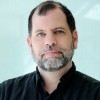
Tyler CowenAllison Schrager’s An Economist Walks Into a Brothel is the best, most readable, most informative, most adventurous, and most entertaining take on risk you will find. (Source)

Adam GrantIf you want to understand risk better, you have to go into some unconventional settings. In the tradition of Freakonomics, that’s what Allison Schrager does as an economist, and her book is not just informative—it’s an entertaining read too (Source)

Nick GillespieThe world may be in flames, but are *you* taking enough risk? Great @TEDTalks from economist @AllisonSchrager, whose An Economist Walks into a Brothel, is a book-length treatment of the topic. https://t.co/SDdHAABPO4 (Source)
17

An inspiring personal story of redemption, second chances, and the transformative power within us all, from the founder and CEO of the nonprofit charity: water.
At 28 years old, Scott Harrison had it all. A top nightclub promoter in New York City, his life was an endless cycle of drugs, booze, models--repeat. But 10 years in, desperately unhappy and morally bankrupt, he asked himself, "What would the exact opposite of my life look like?" Walking away from everything, Harrison spent the next 16 months on a hospital ship in West Africa and discovered his true calling.... more An inspiring personal story of redemption, second chances, and the transformative power within us all, from the founder and CEO of the nonprofit charity: water.
At 28 years old, Scott Harrison had it all. A top nightclub promoter in New York City, his life was an endless cycle of drugs, booze, models--repeat. But 10 years in, desperately unhappy and morally bankrupt, he asked himself, "What would the exact opposite of my life look like?" Walking away from everything, Harrison spent the next 16 months on a hospital ship in West Africa and discovered his true calling. In 2006, with no money and less than no experience, Harrison founded charity: water. Today, his organization has raised over $300 million to bring clean drinking water to more than 8.2 million people around the globe.
In Thirst, Harrison recounts the twists and turns that built charity: water into one of the most trusted and admired nonprofits in the world. Renowned for its 100% donation model, bold storytelling, imaginative branding, and radical commitment to transparency, charity: water has disrupted how social entrepreneurs work while inspiring millions of people to join its mission of bringing clean water to everyone on the planet within our lifetime.
In the tradition of such bestselling books as Shoe Dog and Mountains Beyond Mountains, Thirst is a riveting account of how to build a better charity, a better business, a better life--and a gritty tale that proves it's never too late to make a change.
100% of the author's net proceeds from Thirst will go to fund charity: water projects around the world.
less 
Arianna HuffingtonScott Harrison's Thirst is a hope-filled book about finding your purpose in life and pursuing it against all odds. From the many unbelievable stories Harrison shares from the field, to the moments when charity: water’s survival was in question, this book will inspire you to believe that you are more than the obstacles life has put in your path, and the world is more generous than it often seems. (Source)

Adam GrantThis book does for the soul what water does for a parched throat. Scott Harrison shares his extraordinary transformation from party animal into the visionary leader of one of the world’s most creative and crucial charities. His story will inspire you to think bigger, feel deeper, and give more. (Source)

David Heinemeier HanssonScott Harrison, the founder of charity:water, tells his redemption story of being a night-club promoter in NYC that ran the hard and fast life for a decade before rediscovering his faith and committing to a mission for humanity. It’s an at times tense story that gives you a real appreciation for those who choose to give their life to a higher cause.
It was also at times a bit of hard book for me... (Source)
18

"This is the management book of the year. Clear, powerful and urgent, it's a must read for anyone who cares about where they work and how they work."
--Seth Godin, author of This is Marketing
"This book is a breath of fresh air. Read it now, and make sure your boss does too."
--Adam Grant, New York Times bestselling author of Give and Take, Originals, and Option B with Sheryl Sandberg
When fast-scaling startups and global organizations get stuck, they call Aaron Dignan. In this book, he... more "This is the management book of the year. Clear, powerful and urgent, it's a must read for anyone who cares about where they work and how they work."
--Seth Godin, author of This is Marketing
"This book is a breath of fresh air. Read it now, and make sure your boss does too."
--Adam Grant, New York Times bestselling author of Give and Take, Originals, and Option B with Sheryl Sandberg
When fast-scaling startups and global organizations get stuck, they call Aaron Dignan. In this book, he reveals his proven approach for eliminating red tape, dissolving bureaucracy, and doing the best work of your life.
He's found that nearly everyone, from Wall Street to Silicon Valley, points to the same frustrations: lack of trust, bottlenecks in decision making, siloed functions and teams, meeting and email overload, tiresome budgeting, short-term thinking, and more.
Is there any hope for a solution? Haven't countless business gurus promised the answer, yet changed almost nothing about the way we work?
That's because we fail to recognize that organizations aren't machines to be predicted and controlled. They're complex human systems full of potential waiting to be released.
Dignan says you can't fix a team, department, or organization by tinkering around the edges. Over the years, he has helped his clients completely reinvent their operating systems--the fundamental principles and practices that shape their culture--with extraordinary success.
Imagine a bank that abandoned traditional budgeting, only to outperform its competition for decades. An appliance manufacturer that divided itself into 2,000 autonomous teams, resulting not in chaos but rapid growth. A healthcare provider with an HQ of just 50 people supporting over 14,000 people in the field--that is named the "best place to work" year after year. And even a team that saved $3 million per year by cancelling one monthly meeting.
Their stories may sound improbable, but in Brave New Work you'll learn exactly how they and other organizations are inventing a smarter, healthier, and more effective way to work. Not through top down mandates, but through a groundswell of autonomy, trust, and transparency.
Whether you lead a team of ten or ten thousand, improving your operating system is the single most powerful thing you can do. The only question is, are you ready? less 
Arianna HuffingtonHuman beings can’t thrive in a work culture that uses burnout and 'being always on' as proxies for dedication and success. In Brave New Work, Aaron Dignan shows us that, in fact, workplaces that empower people to take care of themselves are far more likely to deliver sustainable performance and happiness. (Source)

Seth GodinThis is the management book of the year. Clear, powerful and urgent, it's a must read for anyone who cares about where they work and how they work. (Source)
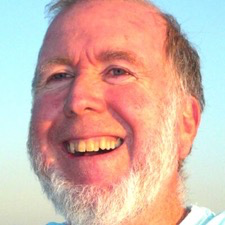
Kevin KellyI am now a convert. Aaron sums up all the crazy ideas about how to create teams and companies that maximize their potential by decentralizing their power—a once idealist notion that is now possible and essential. For a book that might start a revolution, it's surprisingly practical and undogmatic. There’s no fluff—it's all meat, and real news. I could think of dozens of people I know who I now... (Source)
19

What do James Bond and Lipitor have in common? What can we learn about human nature and world history from a glass of water?
In Loonshots, physicist and entrepreneur Safi Bahcall reveals a surprising new way of thinking about the mysteries of group behavior that challenges everything we thought we knew about nurturing radical breakthroughs.
Drawing on the science of phase transitions, Bahcall shows why teams, companies, or any group with a mission will suddenly change from embracing wild new ideas to rigidly rejecting them, just as flowing water will... more What do James Bond and Lipitor have in common? What can we learn about human nature and world history from a glass of water?
In Loonshots, physicist and entrepreneur Safi Bahcall reveals a surprising new way of thinking about the mysteries of group behavior that challenges everything we thought we knew about nurturing radical breakthroughs.
Drawing on the science of phase transitions, Bahcall shows why teams, companies, or any group with a mission will suddenly change from embracing wild new ideas to rigidly rejecting them, just as flowing water will suddenly change into brittle ice. Mountains of print have been written about culture. Loonshots identifies the small shifts in structure that control this transition, the same way that temperature controls the change from water to ice.
Using examples that range from the spread of fires in forests to the hunt for terrorists online, and stories of thieves and geniuses and kings, Bahcall shows how this new kind of science helps us understand the behavior of companies and the fate of empires. Loonshots distills these insights into lessons for creatives, entrepreneurs, and visionaries everywhere. less 
Daniel KahnemanThis book has everything: new ideas, bold insights, entertaining history and convincing analysis. Not to be missed by anyone who wants to understand how ideas change the world. (Source)
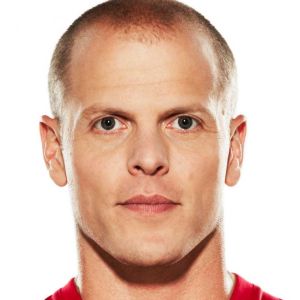
Timothy FerrissIt really is [a damn good book]. So I encourage people, loonshots.com, take a look at the book. And if you’re like, “I still need to be sold,” okay. Go read up on Safi and you’ll be like, “Okay, there are probably additional things that I could learn from Safi and from the historical examples that you weave together, right?” It’s really the way that I like to learn personally and I think it’s the... (Source)

Siddhartha MukherjeeA wonderful book that explores the beauty, quirkiness and complexity of ideas, Loonshots will both educate and entertain you. If you care about ideas—especially new and out-of-the-box ones—you need to read this book. (Source)
20

Be Fearless
is researched-based call to action for those seeking to live extraordinary lives and bring about transformational change.
LOS ANGELES TIMES BESTSELLER * NATIONAL BESTSELLER
Weaving together storytelling, practical tips and inspiration, the book will teach you how to put the five fearless principles to work so that you too can spark the sorts of remarkable breakthroughs that can impact the world. Philanthropist, investor, and technology pioneer Jean Case brings to life the five Be Fearless principles common... more
Be Fearless
is researched-based call to action for those seeking to live extraordinary lives and bring about transformational change.
LOS ANGELES TIMES BESTSELLER * NATIONAL BESTSELLER
Weaving together storytelling, practical tips and inspiration, the book will teach you how to put the five fearless principles to work so that you too can spark the sorts of remarkable breakthroughs that can impact the world. Philanthropist, investor, and technology pioneer Jean Case brings to life the five Be Fearless principles common to the people and organizations that bring about transformational change.
When National Geographic Chairman Jean Case set out to investigate the core qualities of great change makers, past and present, from inventors to revolutionaries, she found five surprising traits they all had in common. These weren’t wealth, privilege, or even genius. What all of these exceptional men and women shared was that they had chosen to make a “big bet,” take bold risks, learn from their failures, reach beyond their bubbles, and let urgency conquer fear.
Throughout Be Fearless, Jean vividly illustrates these principles through storytelling—from her own transformational life experiences, to Jane Goodall’s remarkable breakthroughs in understanding and protecting chimpanzees, to celebrity chef José Andrés’ decision to be a “first responder” and take his kitchen to the sites of devastating hurricanes to feed the hungry, to Madame C.J. Walker’s vision to build a hair care empire that would employ thousands across the country, and more. She shares new insights to stories you might think you know—like Airbnb’s tale of starting from scratch to transform the hospitality industry, to John F. Kennedy’s history-making moonshot—and gems from changemakers you’ve never heard of. less 

 Recommended by Eric Schmidt, Melinda Gates, Brad Feld, and 4 others.
Recommended by Eric Schmidt, Melinda Gates, Brad Feld, and 4 others. 
Eric SchmidtJean Case has done what many before her have tried but been unable to achieve: break down the essential qualities and principles that drive success. Her book tells us in no uncertain terms what it takes to break through in an increasingly crowded world of ideas. With legitimately surprising research and compelling stories, Be Fearless inspires us all to take risks we usually wouldn’t, conquer the... (Source)

Melinda GatesIf you want to change the world, it helps to be fearless. And if you need a dose of courage, I recommend this powerful collection of stories, evidence, and optimism. Jean Case draws on research and personal experience to provide change-makers with moral support and practical guidance. (Source)

Brad FeldWhen the going gets tough, crack open Be Fearless for a jolt of examples of how entrepreneurs and leaders have broken through and to be inspired to keep pushing forward on your own journey to change the world. (Source)
Don't have time to read Adam Grant's favorite books? Read Shortform summaries.
Shortform summaries help you learn 10x faster by:
- Being comprehensive: you learn the most important points in the book
- Cutting out the fluff: you focus your time on what's important to know
- Interactive exercises: apply the book's ideas to your own life with our educators' guidance.
21

A recent estimate suggests that employees endure a staggering 55 million meetings a day in the United States. This tremendous time investment yields only modest returns. No organization made up of human beings is immune from the all-too-common meeting gripes: those that fail to engage, those that inadvertently encourage participants to tune out, and those that blatantly disregard participants' time.
Most companies and leaders view poor meetings as an inevitable cost of doing business. But managers can take heart: researchers now have a clear understanding of the key drivers that... more A recent estimate suggests that employees endure a staggering 55 million meetings a day in the United States. This tremendous time investment yields only modest returns. No organization made up of human beings is immune from the all-too-common meeting gripes: those that fail to engage, those that inadvertently encourage participants to tune out, and those that blatantly disregard participants' time.
Most companies and leaders view poor meetings as an inevitable cost of doing business. But managers can take heart: researchers now have a clear understanding of the key drivers that make meetings successful. In The Surprising Science of Meetings, Steven G. Rogelberg, researcher and consultant to some of the world's most successful companies, draws from extensive research, analytics and data mining, and survey interviews with over 5,000 employees across a range of industries to share the proven practices and techniques that help managers and employees enhance the quality of their meetings. For those who lead and participate in meetings, Rogelberg provides immediate direction, guidance, and relief, offering a how-to guide to change your working life starting today.
less 
Adam GrantIn workplaces around the world, meetings are where productivity and creativity go to die. Steven Rogelberg is the world's leading expert on how to fix them, and here he shares the best evidence on how we can stop wasting time and falling victim to groupthink. (Source)

David AltmanFinally! Evidence-based, actionable advice about improving the quality and impact of meetings. Rogelberg has written a tour de force. If you put his sage advice into action, your teams and organizations will accomplish more. (Source)
22

Adam GrantThis is one of the most provocative, lucidly written books I’ve read on work, by a renowned thought leader and an influential talent executive. Be prepared to throw your strategic plan out the window and become well-lopsided instead of well-rounded. (Source)
23

In The Growth OS, startup guru David Kidder and the Bionic Team reveal their blueprint for helping companies recapture their growth skills--by funding a portfolio of startups and monitoring their progress to encourage entrepreneurship within companies.
When David Kidder was invited to speak at GE's annual leadership conference in 2012, he yelled down to chairman and CEO Jeff Immelt, "How many $50 million companies did you launch last year?" The answer was zero. But Immelt, rather than being angry or offended at the interruption, candidly said to his teams, "That was... more In The Growth OS, startup guru David Kidder and the Bionic Team reveal their blueprint for helping companies recapture their growth skills--by funding a portfolio of startups and monitoring their progress to encourage entrepreneurship within companies.
When David Kidder was invited to speak at GE's annual leadership conference in 2012, he yelled down to chairman and CEO Jeff Immelt, "How many $50 million companies did you launch last year?" The answer was zero. But Immelt, rather than being angry or offended at the interruption, candidly said to his teams, "That was the most important question in the thirty-seven years of this conference."
The fact is, as Kidder shows in The Growth OS, entrenched thinking and outdated bureaucracy is at war with new ideas. Yet, of the top five companies by market cap in 2001, only Microsoft remains in 2016. Traditional companies have tumbled off the list.
To think like a scaled startup, companies today need to look for markets that haven't been discovered or created yet.
They need to identify a customer problem and work backward from the outside in to discover a business model for that solution.
The Growth OS is designed to instill the mindsets, methods, and tools that veteran venture investors and experienced entrepreneurs use to discover the future in the face of the unknowable. But even most bets placed by VC's fail, more than 80 percent of the time. That is why you need a portfolio of investments and a growth board to measure the progress of each business, only continuing to fund those that show validated progress. less 

 Recommended by Clayton Christensen, Kate Johnson, Adam Grant, and 4 others.
Recommended by Clayton Christensen, Kate Johnson, Adam Grant, and 4 others. 
Clayton ChristensenOnce a big company makes the decision to grow, it has to learn how. New to Big presents a unique roadmap for big companies looking to spark powerful growth engines from within. (Source)

Kate JohnsonNew to Big is a great how-to book for change leaders seeking to drive scalable, profitable growth in big companies, reminding us how to use deep questioning, masterful listening, and a learning culture to discover the ‘commercial truth’! (Source)

Adam GrantBig companies are normally where creativity goes to die. But David Kidder has spent his impressive career proving that it doesn’t have to be that way. This is the long-awaited playbook for figuring out how to turn your bureaucracy into an innovation machine. Whether you’re down in the trenches or up in the C-suite, it’s full of smart ideas that are immediately actionable and immensely useful. (Source)
24

In a book inspired by her popular TED talk, New York Times bestselling author Reshma Saujani empowers women and girls to embrace imperfection and bravery.
Imagine if you lived without the fear of not being good enough. If you didn't care how your life looked on Instagram, or worry about what total strangers thought of you. Imagine if you could let go of the guilt, and stop beating yourself up for tiny mistakes. What if, in every decision you faced, you took the bolder path?
Too many of us feel crushed under the weight of our own expectations. We run... more In a book inspired by her popular TED talk, New York Times bestselling author Reshma Saujani empowers women and girls to embrace imperfection and bravery.
Imagine if you lived without the fear of not being good enough. If you didn't care how your life looked on Instagram, or worry about what total strangers thought of you. Imagine if you could let go of the guilt, and stop beating yourself up for tiny mistakes. What if, in every decision you faced, you took the bolder path?
Too many of us feel crushed under the weight of our own expectations. We run ourselves ragged trying to please everyone, all the time. We lose sleep ruminating about whether we may have offended someone, pass up opportunities that take us out of our comfort zones, and avoid rejection at all costs.
There's a reason we act this way, Reshma says. As girls, we were taught to play it safe. Well-meaning parents and teachers praised us for being quiet and polite, urged us to be careful so we didn't get hurt, and steered us to activities at which we could shine.
The problem is that perfect girls grow up to be women who are afraid to fail. It's time to stop letting our fears drown out our dreams and narrow our world, along with our chance at happiness.
By choosing bravery over perfection, we can find the power to claim our voice, to leave behind what makes us unhappy, and go for the things we genuinely, passionately want. Perfection may set us on a path that feels safe, but bravery leads us to the one we're authentically meant to follow.
In Brave, Not Perfect, Reshma shares powerful insights and practices to help us override our perfect girl training and make bravery a lifelong habit. By being brave, not perfect, we can all become the authors of our biggest, boldest, and most joyful life. less 
Adam GrantThe perfect is not just the enemy of the good; the pressure to be perfect is the enemy of girls around the world. Reshma Saujani, the founder and CEO of Girls Who Code, examines how to free girls—and women—from the shackles of social expectations. (Source)
25

NEW YORK TIMES BESTSELLER - From the longtime CEO and chairman of Starbucks, a bold, dramatic work about the new responsibilities that leaders, businesses, and citizens share in American society today--as viewed through the intimate lens of one man's life and work.
What do we owe one another? How do we channel our drive, ingenuity, even our pain, into something more meaningful than individual success? And what is our duty in the places where we live, work, and play?
These questions are at the heart of the American journey. They are also ones that Howard... more NEW YORK TIMES BESTSELLER - From the longtime CEO and chairman of Starbucks, a bold, dramatic work about the new responsibilities that leaders, businesses, and citizens share in American society today--as viewed through the intimate lens of one man's life and work.
What do we owe one another? How do we channel our drive, ingenuity, even our pain, into something more meaningful than individual success? And what is our duty in the places where we live, work, and play?
These questions are at the heart of the American journey. They are also ones that Howard Schultz has grappled with personally since growing up in the Brooklyn housing projects and while building Starbucks from eleven stores into one of the world's most iconic brands.
In From the Ground Up, Schultz looks for answers in two interwoven narratives. One story shows how his conflicted boyhood--including experiences he has never before revealed--motivated Schultz to become the first in his family to graduate from college, then to build the kind of company his father, a working-class laborer, never had a chance to work for: a business that tries to balance profit and human dignity.
A parallel story offers a behind-the-scenes look at Schultz's unconventional efforts to challenge old notions about the role of business in society. From health insurance and free college tuition for part-time baristas to controversial initiatives about race and refugees, Schultz and his team tackled societal issues with the same creativity and rigor they applied to changing how the world consumes coffee.
Throughout the book, Schultz introduces a cross-section of Americans transforming common struggles into shared successes. In these pages, lost youth find first jobs, aspiring college students overcome the yoke of debt, post-9/11 warriors replace lost limbs with indomitable spirit, former coal miners and opioid addicts pave fresh paths, entrepreneurs jump-start dreams, and better angels emerge from all corners of the country.
From the Ground Up is part candid memoir, part uplifting blueprint of mutual responsibility, and part proof that ordinary people can do extraordinary things. At its heart, it's an optimistic, inspiring account of what happens when we stand up, speak out, and come together for purposes bigger than ourselves. Here is a new vision of what can be when we try our best to lead lives through the lens of humanity.
"Howard Schultz's story is a clear reminder that success is not achieved through individual determination alone, but through partnership and community. Howard's commitment to both have helped him build one of the world's most recognized brands. It will be exciting to see what he accomplishes next."--Bill Gates less 
Bill GatesHoward Schultz’s story is a clear reminder that success is not achieved through individual determination alone, but through partnership and community. Howard’s commitment to both have helped him build one of the world’s most recognized brands. It will be exciting to see what he accomplishes next. (Source)

Serena WilliamsFrom the Ground Up will resonate with anyone who knows what it’s like to overcome adversity. Howard Schultz’s dream to make the world more fair and welcoming for everyone is truly a breath of fresh air. (Source)

Adam GrantBefore becoming the CEO who grew Starbucks into an international powerhouse, Howard Schultz grew up in the Brooklyn housing projects and became the first person in his family to go to college. He intersperses his personal journey with his vision for building socially responsible companies and communities. (Source)
26

One woman’s inspiring true story of an unlikely alliance to stop the atrocities of a warlord, proving that there is no limit to what we can do, even in the face of unspeakable injustice and impossible odds
“This compelling and inspiring book beautifully moves each of us to take action to help the most vulnerable among us.”—Archbishop Emeritus Desmond Tutu
Late one night in the summer of 2010, Shannon Sedgwick Davis, a lawyer, human rights advocate, and Texas mom to two young boys, first met the Ugandan general to discuss an unconventional plan to stop... more One woman’s inspiring true story of an unlikely alliance to stop the atrocities of a warlord, proving that there is no limit to what we can do, even in the face of unspeakable injustice and impossible odds
“This compelling and inspiring book beautifully moves each of us to take action to help the most vulnerable among us.”—Archbishop Emeritus Desmond Tutu
Late one night in the summer of 2010, Shannon Sedgwick Davis, a lawyer, human rights advocate, and Texas mom to two young boys, first met the Ugandan general to discuss an unconventional plan to stop Joseph Kony, a murderous warlord who’d terrorized communities in four countries across Central and East Africa.
For twenty-five years, Kony and his Lord’s Resistance Army had killed over a hundred thousand people, displaced millions, and abducted tens of thousands of children, forcing them to become child soldiers. After meeting with survivors and community leaders, aid workers and lawmakers, it was clear that the current international systems were failing to protect the most vulnerable. Guided by the strength of her beliefs and convictions, Sedgwick Davis knew she had to help other parents to have the same right she had—to go to sleep each night knowing that their children were safe.
But Sedgwick Davis had no roadmap for how to stop a violent armed group. She would soon step far outside the bounds of traditional philanthropy and activism and partner her human rights organization, the Bridgeway Foundation, with a South African private military contractor and a specialized unit within the Ugandan army. The journey would bring her to question everything she had previously believed about her role as a humanitarian, about the meaning of justice, and about the very nature of good and evil.
In To Stop a Warlord, Shannon Sedgwick Davis tells the story, for the first time, of the unprecedented collaboration she helped build with the aim of finally ending Joseph Kony’s war—and the unforgettable journey on an unexpected path to peace. A powerful memoir that reads like a thriller, this is a story that asks us just how hard we would fight for what we believe in.
100 percent of the author’s net proceeds from this book will go to organizations seeking justice and protection for civilians in conflict zones.
“This is an extraordinary memoir by an extraordinary leader—it’s impossible to read without feeling moved to do more to help those with less.”—Adam Grant, New York Times bestselling author of Originals and Give and Take less 
Adam GrantHow far would you go to stop a murderous Ugandan warlord who had turned thousands of children into soldiers and sex slaves? As the head of a human rights foundation, Shannon Sedgwick Davis did something unprecedented: she hired private military contractors to train an army to stop him. It’s impossible to read her memoir without feeling moved to do more to help those with less. (Source)
27

Adam GrantPassion is a roller coaster ride that can send us on a sudden, precipitating plunge from the heights of happiness to the depths of despair. This thoughtful, immediately readable book shows how to manage passion so it brings out the best in us—rather than the worst in us. (Source)
28

We use money to solve our everyday problems, and it generally works well. Despite its economic benefits, however, money has a psychological downside: it trains us to think about negotiations narrow-mindedly, leading us to negotiate badly. Suggesting that we need a non-monetary mindset to negotiate better, The Bartering Mindset shows us how to look outside the monetary economy - to the bartering economies of the past, where people traded what they had for what they needed. The book argues that, because of the economic difficulties associated with bartering, barterers had to use a more... more We use money to solve our everyday problems, and it generally works well. Despite its economic benefits, however, money has a psychological downside: it trains us to think about negotiations narrow-mindedly, leading us to negotiate badly. Suggesting that we need a non-monetary mindset to negotiate better, The Bartering Mindset shows us how to look outside the monetary economy - to the bartering economies of the past, where people traded what they had for what they needed. The book argues that, because of the economic difficulties associated with bartering, barterers had to use a more sophisticated form of negotiation - a strategic approach that can make us master negotiators today.
This book immerses readers in the assumptions made by barterers, collectively referred to as the "bartering mindset," and then demonstrates how to apply this mindset to modern, monetary negotiations. The Bartering Mindset concludes that our individual, organizational, and social problems fester for a predictable reason: we apply a monetary mindset to our negotiations, leading to suboptimal thinking, counterproductive behaviors, and disappointing outcomes. By offering the bartering mindset as an alternative, this book will help people negotiate better and thrive. less 
Adam GrantBrian Gunia is an expert on negotiating, and he does something unusual here: he offers insights about bargaining that are both novel and useful. (Source)
29

NEW YORK TIMES BESTSELLER
The strength and prestige of the American presidency has waxed and waned since George Washington. Accidental Presidents looks at eight men who came to the office without being elected to it. It demonstrates how the character of the man in that powerful seat affects the nation and world.
Eight men have succeeded to the presidency when the incumbent died in office. In one way or another they vastly changed our history. Only Theodore Roosevelt would have been elected in his own right. Only TR, Truman, Coolidge, and LBJ... more NEW YORK TIMES BESTSELLER
The strength and prestige of the American presidency has waxed and waned since George Washington. Accidental Presidents looks at eight men who came to the office without being elected to it. It demonstrates how the character of the man in that powerful seat affects the nation and world.
Eight men have succeeded to the presidency when the incumbent died in office. In one way or another they vastly changed our history. Only Theodore Roosevelt would have been elected in his own right. Only TR, Truman, Coolidge, and LBJ were re-elected.
John Tyler succeeded William Henry Harrison who died 30 days into his term. He was kicked out of his party and became the first president threatened with impeachment. Millard Fillmore succeeded esteemed General Zachary Taylor. He immediately sacked the entire cabinet and delayed an inevitable Civil War by standing with Henry Clay’s compromise of 1850. Andrew Johnson, who succeeded our greatest president, sided with remnants of the Confederacy in Reconstruction. Chester Arthur, the embodiment of the spoils system, was so reviled as James Garfield’s successor that he had to defend himself against plotting Garfield’s assassination; but he reformed the civil service. Theodore Roosevelt broke up the trusts. Calvin Coolidge silently cooled down the Harding scandals and preserved the White House for the Republican Herbert Hoover and the Great Depression. Truman surprised everybody when he succeeded the great FDR and proved an able and accomplished president. Lyndon B. Johnson was named to deliver Texas electorally. He led the nation forward on Civil Rights but failed on Vietnam.
Accidental Presidents adds immeasurably to our understanding of the power and limits of the American presidency in critical times. less 
Adam GrantIt’s rare for a physician to become a prominent social scientist. It’s even rarer for that person to write a book that opens your eyes to a fresh way of understanding the world. Blueprint is a contrarian exploration of how good societies may be shaped less by historical forces and more by natural selection. (Source)
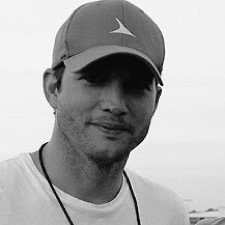
Ashton KutcherIf you think today’s politics are wild, read [this book]. (Source)
30

Harness your company's incumbent advantages to win the digital disruption game
Goliath's Revenge is the practical guide for how executives and aspiring leaders of established companies can run the Silicon Valley playbook for themselves and capitalize on digital disruption. Technologies like artificial intelligence, robotics, internet of things, blockchain, and immersive experiences are changing the basis of competition in every industry. New competitors are emerging while traditional ones are falling behind.
Periods of intense change provide remarkable... more Harness your company's incumbent advantages to win the digital disruption game
Goliath's Revenge is the practical guide for how executives and aspiring leaders of established companies can run the Silicon Valley playbook for themselves and capitalize on digital disruption. Technologies like artificial intelligence, robotics, internet of things, blockchain, and immersive experiences are changing the basis of competition in every industry. New competitors are emerging while traditional ones are falling behind.
Periods of intense change provide remarkable opportunities. Goliath's Revenge delivers an insider's view of how industry leaders like General Motors, NASA, The Weather Channel, Hitachi, Mastercard, Proctor & Gamble, Penn Medicine, Discovery, and Cisco are accelerating innovation, building new skills, and disrupting themselves to come out stronger in this post-digital age. Learn how to leverage your company's scale, reach, data, and expertise to launch breakthrough offerings that fend off attackers and secure your position as a future industry leader.
Using real success cases and recommendations, this invaluable resource shows how to realign your business model, reset your talent development priorities, and retake market share lost to digital-ready competitors. Drawing from extensive experience in digital transformation, leadership development, and strategic planning, the authors show how established companies can switch from defense to offense to thrive in this new digital environment.
Learn the six new rules that separate winners from losers in the age of digital disruption Prioritize your innovation investments to rebuild your competitive moat Employ smart cannibalization to defend your core business Deliver step-change customer outcomes to grow into adjacent markets Reframe your purpose and make talent the centerpiece of your digital innovation strategy Goliath's Revenge is a must-read for business leaders and innovators in small, mid-sized, and large organizations trying to win the digital disruption game. This book helps you reset both your company strategy and professional development priorities for long-term success. less 
 Recommended by Jan Zijderveld, Adam Grant, and 2 others.
Recommended by Jan Zijderveld, Adam Grant, and 2 others. 
Jan ZijderveldDigital disruption is now the norm, with the consumer in the driver seat. Goliath's Revenge can help leaders realise their digital ambitions. (Source)

Adam GrantWill your business be disrupted? Definitely. Do the disruptors have to be a small band of hackers in a garage? Definitely not. This book is full of practical tips for big companies to get a leg up on scrappy startups. (Source)
Don't have time to read Adam Grant's favorite books? Read Shortform summaries.
Shortform summaries help you learn 10x faster by:
- Being comprehensive: you learn the most important points in the book
- Cutting out the fluff: you focus your time on what's important to know
- Interactive exercises: apply the book's ideas to your own life with our educators' guidance.
31

A visual exploration of how to embrace emotion at work and become more authentic and fulfilled while staying professional.
When it comes to emotions at work, there's rarely a happy medium. In some offices, your boss might send snaps of her weekend getaway in Vegas, or your coworker might send twenty texts about how Susan ate his clearly labeled lunch...again. Other offices are buttoned-up emotional deserts, where crying is only allowed in the bathroom and you suspect your coworkers might be robots. Either extreme hurts employee health and productivity.
Liz... more A visual exploration of how to embrace emotion at work and become more authentic and fulfilled while staying professional.
When it comes to emotions at work, there's rarely a happy medium. In some offices, your boss might send snaps of her weekend getaway in Vegas, or your coworker might send twenty texts about how Susan ate his clearly labeled lunch...again. Other offices are buttoned-up emotional deserts, where crying is only allowed in the bathroom and you suspect your coworkers might be robots. Either extreme hurts employee health and productivity.
Liz Fosslien and Mollie West Duffy take a charming and deeply researched look at how emotions affect our professional lives and how we can navigate emotions at work. The modern workplace can be an emotional minefield (Do I shake my boss's hand or give her a hug? Did I forget to mute my phone on the conference call?) filled with unwritten rules. As our jobs become more collaborative, complex, and stressful, effectively embracing emotion is more important than ever.
The book combines practical advice and scientific research to give you the tools you need. A sample:
* Forget "unemotional" decisions; there are none. In fact, rational decisions require you to acknowledge and examine your emotions. For instance, fear often indicates anticipated future regret.
* Real, valuable feedback is not going to feel like a gift. Realize that negative feedback often means the criticizer cares about helping you improve and is willing to bear the awkwardness of a difficult conversation.
* Stop letting someone else's bad mood ruin your day. Emotions are viral-- we catch the feelings of those around us. If you're stuck next to a constant complainer, mentally remove yourself from the situation.
* Learn to communicate and interpret digital messages. That "totally normal" email you sent may be seen as hostile because you didn't explicitly state your positive emotions (e.g., "I love what you did here!").
Thanks to Fosslien's sharply funny two-color illustrations, No Hard Feelings is a romp through behavioral economics, psychology, and organizational design. less 
Susan CainA must-read that topples the idea that emotions don't belong in the workplace, No Hard Feelings offers a path towards a future I want to work in: an emotionally expressive, yet respectful (and high-performing!) workplace. (Source)

Cal NewportNo Hard Feelings is one of the most original, insightful, and laugh out loud funny business books I've read in a long time. It will transform the way you think about the role of feelings in the workplace. (Source)

Adam GrantIf you’ve ever thought it’s best to check your emotions at the office door, this book will change your mind. It’s full of lively illustrations and practical examples to show how you can harness emotions to become more creative, collaborative, and productive. (Source)
32

Reid HoffmanThis insightful book blends academic rigor with practical, step-by-step tools that can help you design innovative business models for the Networked Age. Connected Strategy shows how to leverage continuous connectivity and emerging AI to make deep relationships that benefit customers and businesses alike. Read this book if you want to build a business model of the future. (Source)

Adam GrantIn a connected world, companies live and die on their ability to create great customer experiences. In this book, two leading experts on strategy and innovation team up to explore how to create those experiences in a rapidly changing world. Their lively, practical book offers rich cases, evidence, and frameworks for gaining and maintaining a competitive advantage. (Source)
33

A few common principles drive performance, regardless of the field or the task at hand. Whether someone is trying to qualify for the Olympics, break ground in mathematical theory or craft an artistic masterpiece, many of the practices that lead to great success are the same. In Peak Performance, Brad Stulberg, a former McKinsey and Company consultant and journalist who covers health and the science of human performance, and Steve Magness, a performance scientist and coach of Olympic athletes, team up to demystify these practices and demonstrate how everyone can achieve their best.
more A few common principles drive performance, regardless of the field or the task at hand. Whether someone is trying to qualify for the Olympics, break ground in mathematical theory or craft an artistic masterpiece, many of the practices that lead to great success are the same. In Peak Performance, Brad Stulberg, a former McKinsey and Company consultant and journalist who covers health and the science of human performance, and Steve Magness, a performance scientist and coach of Olympic athletes, team up to demystify these practices and demonstrate how everyone can achieve their best.
The first book of its kind, Peak Performance combines the inspiring stories of top performers across a range of capabilities - from athletic, to intellectual, to artistic - with the latest scientific insights into the cognitive and neurochemical factors that drive performance in all domains. In doing so, Peak Performance uncovers new linkages that hold promise as performance enhancers but have been overlooked in our traditionally-siloed ways of thinking. The result is a life-changing book in which readers will learn how to enhance their performance by a myriad of ways including: optimally alternating between periods of intense work and rest; developing and harnessing the power of a self-transcending purpose; and priming the body and mind for enhanced productivity.
In revealing the science of great performance and the stories of great performers across a wide range of capabilities, Peak Performance uncovers the secrets of success, and coaches readers on how to use them. If you want to take your game to the next level, whatever "your game" may be, Peak Performance will teach you how. less 

 Recommended by Dick Costolo, Arianna Huffington, Dustin Moskovitz, and 10 others.
Recommended by Dick Costolo, Arianna Huffington, Dustin Moskovitz, and 10 others. 
Dick CostoloSo much in this book resonates with me. With practical advice for performance in the workplace or on the playing field, Brad and Steve meticulously deliver a comprehensive understanding of peak performance and howto achieve it. (Source)

Arianna HuffingtonAn essential playbook for success, happiness, and getting the most out of ourselves. (Source)

Dustin MoskovitzSharpen the saw. (Source)
34

NEW YORK TIMES BESTSELLER
"If you’ve ever wondered how you have the capacity to wonder, some fascinating insights await you in these pages.” --Adam Grant, New York Times bestselling author of Originals
As concise and enlightening as Seven Brief Lessons on Physics and Astrophysics for People in a Hurry, this mind-expanding dive into the mystery of consciousness is an illuminating meditation on the self, free will, and felt experience.
What is consciousness? How does... more NEW YORK TIMES BESTSELLER
"If you’ve ever wondered how you have the capacity to wonder, some fascinating insights await you in these pages.” --Adam Grant, New York Times bestselling author of Originals
As concise and enlightening as Seven Brief Lessons on Physics and Astrophysics for People in a Hurry, this mind-expanding dive into the mystery of consciousness is an illuminating meditation on the self, free will, and felt experience.
What is consciousness? How does it arise? And why does it exist? We take our experience of being in the world for granted. But the very existence of consciousness raises profound questions: Why would any collection of matter in the universe be conscious? How are we able to think about this? And why should we?
In this wonderfully accessible book, Annaka Harris guides us through the evolving definitions, philosophies, and scientific findings that probe our limited understanding of consciousness. Where does it reside, and what gives rise to it? Could it be an illusion, or a universal property of all matter? As we try to understand consciousness, we must grapple with how to define it and, in the age of artificial intelligence, who or what might possess it.
Conscious offers lively and challenging arguments that alter our ideas about consciousness—allowing us to think freely about it for ourselves, if indeed we can. less 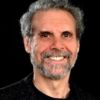
Daniel GolemanA user’s guide to the scientific thinking on consciousness—delivering an assumption-shattering take on how we think about our mind, our self, and this very moment. (Source)

Adam GrantConscious offers the clearest, most compelling explanation that I’ve seen of consciousness. If you’ve ever wondered how you have the capacity to wonder, some fascinating insights await you in these pages. (Source)

Tim UrbanOne of those books that fundamentally shifts the way you think about reality. Consciousness is among the hardest concepts for humans to wrap their heads around, but Annaka Harris is a masterful explainer—she started by breaking my existing beliefs about the nature of consciousness and then she rebuilt them into a more nuanced, more complete, and more mind-bending understanding of what’s really... (Source)
35

“A gentle, knowledgeable guide to a fate we all share” (The Washington Post): the first and only all-encompassing action plan for the end of life.
“There is nothing wrong with you for dying,” hospice physician B.J. Miller and journalist and caregiver Shoshana Berger write in A Beginner’s Guide to the End. “Our ultimate purpose here isn’t so much to help you die as it is to free up as much life as possible until you do.”
Theirs is a clear-eyed and big-hearted action plan for approaching the end of life, written to help readers feel more in control... more “A gentle, knowledgeable guide to a fate we all share” (The Washington Post): the first and only all-encompassing action plan for the end of life.
“There is nothing wrong with you for dying,” hospice physician B.J. Miller and journalist and caregiver Shoshana Berger write in A Beginner’s Guide to the End. “Our ultimate purpose here isn’t so much to help you die as it is to free up as much life as possible until you do.”
Theirs is a clear-eyed and big-hearted action plan for approaching the end of life, written to help readers feel more in control of an experience that so often seems anything but controllable. Their book offers everything from step-by-step instructions for how to do your paperwork and navigate the healthcare system to answers to questions you might be afraid to ask your doctor, like whether or not sex is still okay when you’re sick. Get advice for how to break the news to your employer, whether to share old secrets with your family, how to face friends who might not be as empathetic as you’d hoped, and how to talk to your children about your will. (Don’t worry: if anyone gets snippy, it’ll likely be their spouses, not them.) There are also lessons for survivors, like how to shut down a loved one’s social media accounts, clean out the house, and write a great eulogy.
An honest, surprising, and detail-oriented guide to the most universal of all experiences, A Beginner’s Guide to the End is “a book that every family should have, the equivalent of Dr. Spock but for this other phase of life” (New York Times bestselling author Dr. Abraham Verghese). less 
Susan BlockMiller and Berger, through their honesty and deep experience, help us to live the best life possible with a serious illness. This is a beautiful, poignant, expert, and human handbook for all of us. (Source)

Adam GrantYou know what would be fun today? Reading a book about death,’ said no one ever. So you can imagine my surprise when I opened these pages and found myself smiling on the first one. BJ Miller and Shoshana Berger have done something impressive: they’re written a book about dying that’s not only moving and practical, but also delightful to read. (Source)

Elizabeth GilbertI wish I’d had this book when I needed it. Death and dying are not subjects that many people are comfortable talking about, but it’s hugely important to be as prepared as you can be—emotionally, physically, practically, financially, and spiritually. This book may be the most important guide you could have. (Source)
36

If you’re relying on willpower alone to help you lose weight, improve your relationships, or achieve more at work, you’re doomed to fail. The environment around us is far too powerful, stimulating, addicting, and stressful to overcome by white knuckling. The only way to stop just surviving and learn to truly thrive in today’s world is to proactively shape your environment.
That’s the premise of Willpower Doesn’t Work by Medium.com’s most-read writer, Benjamin Hardy. Building on copious existing research, as well as his own experience of growing up in a broken family... more If you’re relying on willpower alone to help you lose weight, improve your relationships, or achieve more at work, you’re doomed to fail. The environment around us is far too powerful, stimulating, addicting, and stressful to overcome by white knuckling. The only way to stop just surviving and learn to truly thrive in today’s world is to proactively shape your environment.
That’s the premise of Willpower Doesn’t Work by Medium.com’s most-read writer, Benjamin Hardy. Building on copious existing research, as well as his own experience of growing up in a broken family afflicted by addiction and drug use, Hardy explains how people can change their lives on every level by making small, impactful changes in their environment like:
* Creating “enriched environments”–using tougher challenges and personal investment to force yourself to rise to the occasion.
* Growing into your goals-creating multiple layers of accountability to ensure you stay on track.
* Becoming the teacher-stepping into a leadership role (even before you think you’re ready) to accelerate your skill development and commitment.
* Rotating your environments-getting out of your rut by literally changing your physical surroundings throughout the day or week.
From simple steps like removing things that conflict with your values (like junk food, junk media, even junk people), to incorporating new tools (like fasting or embedding “positive triggers” to avoid self-sabotage), these strategies are how you proactively shape your surroundings so you can consciously evolve into the person you want to become. less 
Arianna HuffingtonBenjamin Hardy is one of the leading voices on well-being and productivity. Willpower Doesn't Work is an insightful guide to help us thrive in today's world. (Source)

Ryan HolidayChange your environment, change your life. Ben Hardy's book is a prescription for excellence and contains the hidden keys to success. (Source)

Adam GrantIf you want to get more done, don't worry about willpower--focus on motivation. Challenging the dominant view of self-control as a muscle. Benjamin Hardy reveals that productivity is really about clarity and commitment. (Source)
37

So many organizations and individuals are obsessed with winning. But how do you win a game that never really ends? There is no such thing, for example, as "winning" business.
Simon Sinek's Start With Why and Leaders Eat Last have helped millions of readers see the hidden rules that govern our behavior. Now The Infinite Game picks up where those books left off, challenging us to rethink our perspective on how organizations really work. This time Sinek explores a deceptively simple question: How do you stay ahead in a game with no end?
Games... more So many organizations and individuals are obsessed with winning. But how do you win a game that never really ends? There is no such thing, for example, as "winning" business.
Simon Sinek's Start With Why and Leaders Eat Last have helped millions of readers see the hidden rules that govern our behavior. Now The Infinite Game picks up where those books left off, challenging us to rethink our perspective on how organizations really work. This time Sinek explores a deceptively simple question: How do you stay ahead in a game with no end?
Games like basketball and chess are finite, with firm rules and clear endpoints. But business, for example, is infinite -- there's ultimately no such thing as "winning" because there's always a new set of challenges. Those who thrive in the long run are those who play by infinite rules. They do things that enable them to out-maneuver, out-innovate, and outlast their competitors.
Trying to play an infinite game with a finite mindset can be catastrophic. During the Vietnam War, for instance, America won nearly every battle and killed many more enemy troops but still lost the war. The metrics by which they kept score ultimately didn't matter. The North Vietnamese were willing to endure any hardship for as long as it took to force the Americans to give up. The North Vietnamese played the Infinite Game.
Through a wide range of examples, Sinek explores how infinite players in any field can exhaust their competitors, stay ahead for the long run, and create strong organizations, built to weather nearly any storm. Great leaders instinctively play the infinite game rather than chase short-term gains. Now the rest of us can understand how they do it. less 
Adam GrantIn my view, this is Simon Sinek’s biggest idea yet. If you think success is about winning and losing, you’ve already lost. It works in sports because you're playing a finite game, but business is an infinite one. He argues that the companies that last aren't the ones that play to win. They're the ones that play to keep playing. (Source)
38

An unprecedented history of the personality test conceived a century ago by a mother and her daughter–fiction writers with no formal training in psychology–and how it insinuated itself into our boardrooms, classrooms, and beyond
The Myers-Briggs Type Indicator is the most popular personality test in the world. It is used regularly by Fortune 500 companies, universities, hospitals, churches, and the military. Its language of personality types–extraversion and introversion, sensing and intuiting, thinking and feeling, judging and perceiving–has inspired television shows, online... more An unprecedented history of the personality test conceived a century ago by a mother and her daughter–fiction writers with no formal training in psychology–and how it insinuated itself into our boardrooms, classrooms, and beyond
The Myers-Briggs Type Indicator is the most popular personality test in the world. It is used regularly by Fortune 500 companies, universities, hospitals, churches, and the military. Its language of personality types–extraversion and introversion, sensing and intuiting, thinking and feeling, judging and perceiving–has inspired television shows, online dating platforms, and Buzzfeed quizzes. Yet despite the test’s widespread adoption, experts in the field of psychometric testing, a $2 billion industry, have struggled to validate its results–no less account for its success. How did Myers-Briggs, a homegrown multiple choice questionnaire, infiltrate our workplaces, our relationships, our Internet, our lives?
First conceived in the 1920s by the mother-daughter team of Katherine Briggs and Isabel Briggs Myers, a pair of devoted homemakers, novelists, and amateur psychoanalysts, Myers-Briggs was designed to bring the gospel of Carl Jung to the masses. But it would take on a life entirely its own, reaching from the smoke-filled boardrooms of mid-century New York to Berkeley, California, where it was administered to some of the twentieth century’s greatest creative minds. It would travel across the world to London, Zurich, Cape Town, Melbourne, and Tokyo, until it could be found just as easily in elementary schools, nunneries, and wellness retreats as in shadowy political consultancies and on social networks.
Drawing from original reporting and never-before-published documents, The Personality Brokers takes a critical look at the personality indicator that became a cultural icon. Along the way it examines nothing less than the definition of the self–our attempts to grasp, categorize, and quantify our personalities. Surprising and absorbing, the book, like the test at its heart, considers the timeless question: What makes you, you? less 
Adam GrantThis is a sparkling biography—not just of a pair of remarkable women, but of a popular personality tool. Merve Emre deftly exposes the hidden origins of the MBTI and the seductive appeal and fatal flaws of personality types. Ultimately, she reveals that a sense of self is less something we discover, and more something we create and revise. (Source)
39

New York Times Bestseller
Travel the world with Eric Weiner, the New York Times bestselling author of The Geography of Bliss, as he journeys from Athens to Silicon Valley—and throughout history, too—to show how creative genius flourishes in specific places at specific times.
In The Geography of Genius, acclaimed travel writer Weiner sets out to examine the connection between our surroundings and our most innovative ideas. He explores the history of places, like Vienna of 1900, Renaissance Florence, ancient Athens, Song Dynasty Hangzhou, and... more New York Times Bestseller
Travel the world with Eric Weiner, the New York Times bestselling author of The Geography of Bliss, as he journeys from Athens to Silicon Valley—and throughout history, too—to show how creative genius flourishes in specific places at specific times.
In The Geography of Genius, acclaimed travel writer Weiner sets out to examine the connection between our surroundings and our most innovative ideas. He explores the history of places, like Vienna of 1900, Renaissance Florence, ancient Athens, Song Dynasty Hangzhou, and Silicon Valley, to show how certain urban settings are conducive to ingenuity. And, with his trademark insightful humor, he walks the same paths as the geniuses who flourished in these settings to see if the spirit of what inspired figures like Socrates, Michelangelo, and Leonardo remains. In these places, Weiner asks, “What was in the air, and can we bottle it?” less 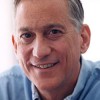
Walter IsaacsonWhy do certain places produce a spontaneous eruption of creativity? What made Athens and Florence and Silicon Valley? This witty and fun book has an insight in every paragraph. It’s a charming mix of history and wisdom cloaked as a rollicking travelogue filled with colorful characters. (Source)

Daniel GilbertEric Weiner has single-handedly invented a new nonfiction genre in which a brilliant and hilarious writer leaves his home and family to circle the globe in search of the answer to a timeless question. The Geography of Genius is an intellectual odyssey, a traveler’s diary, and a comic novel all rolled into one. Smart, original, and utterly delightful, this is Weiner’s best book yet. (Source)

Adam GrantIt’s rare to read a book that makes you laugh and learn, but Eric Weiner has done it again. This witty, wise explorer offers fascinating insights on how culture has inspired creativity across the ages—ripe for chats at water coolers and cocktail parties—and offers a practical map for how we can all become a bit more inventive. (Source)
40

"At fourteen, Amber could boast of killing her guinea pig, threatening to burn down her home, and seducing men in exchange for gifts. She used the tools she had available to get what she wanted, like all children. But unlike other children, she didn't care about the damage she inflicted. A few miles away, Lenny Skutnik cared so much about others that he jumped into an ice-cold river to save a drowning woman. What is responsible for the extremes of generosity and cruelty humans are capable of? By putting psychopathic children and extreme altruists in an fMRI, acclaimed psychologist Abigail... more "At fourteen, Amber could boast of killing her guinea pig, threatening to burn down her home, and seducing men in exchange for gifts. She used the tools she had available to get what she wanted, like all children. But unlike other children, she didn't care about the damage she inflicted. A few miles away, Lenny Skutnik cared so much about others that he jumped into an ice-cold river to save a drowning woman. What is responsible for the extremes of generosity and cruelty humans are capable of? By putting psychopathic children and extreme altruists in an fMRI, acclaimed psychologist Abigail Marsh found that the answer lies in how our brain responds to others' fear. While the brain's amygdala makes most of us hardwired for good, its variations can explain heroic and psychopathic behavior. A path-breaking read, The Fear Factor is essential for anyone seeking to understand the heights and depths of human nature"-- less 
Adam GrantLet Abigail Marsh guide you on a riveting ride through your own brain. With lively writing and an impressive command of science, she shows how sensitivity to fear can be both a weapon of evil and a force for good. (Source)
Don't have time to read Adam Grant's favorite books? Read Shortform summaries.
Shortform summaries help you learn 10x faster by:
- Being comprehensive: you learn the most important points in the book
- Cutting out the fluff: you focus your time on what's important to know
- Interactive exercises: apply the book's ideas to your own life with our educators' guidance.




















